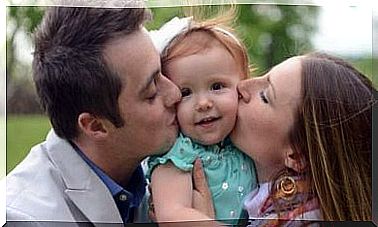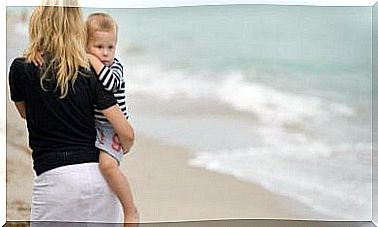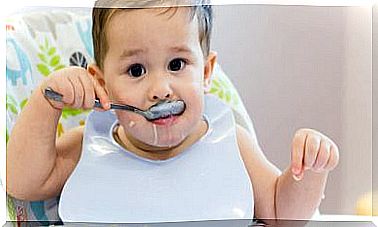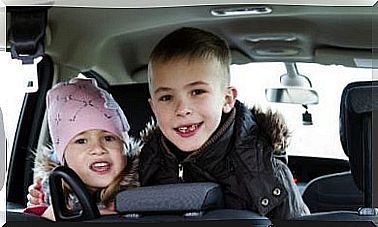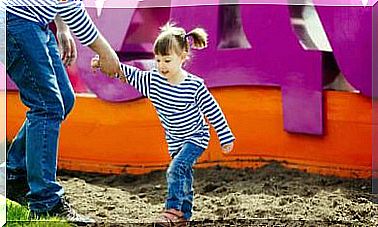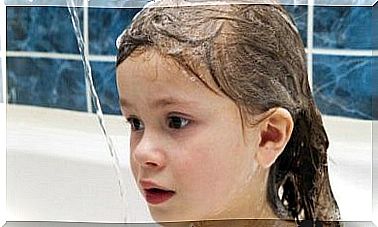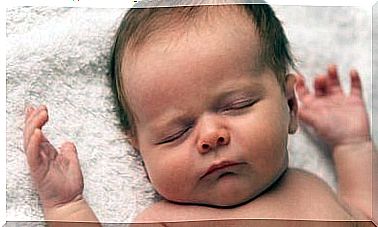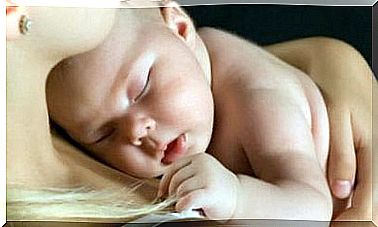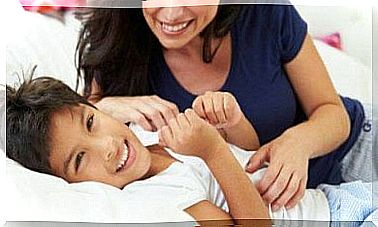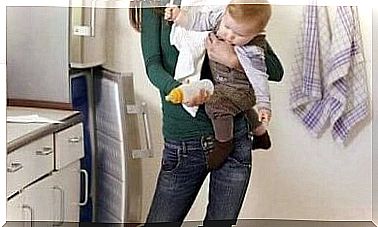Goiter In Children: Manifestations And Causes
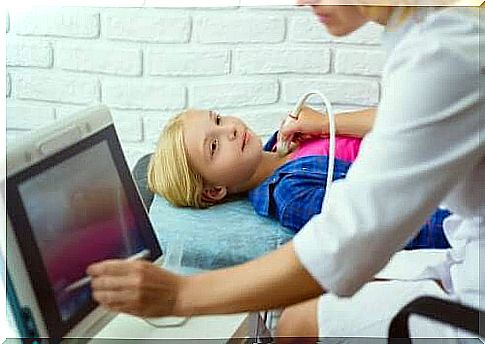
Goiter is nothing more than the increase in the size of the thyroid gland, the gland responsible for the production of thyroid hormones, essential for the growth and development of the child. So let’s see how goiter manifests itself in children.
What is goiter?
As we have said, goiter is the increase in the size of the thyroid gland. The latter is shaped like a butterfly and is located at the front of the neck. It has the task of producing thyroid hormones, responsible for controlling the growth and metabolism of the body: T3, or triiodothyronine, and T4, or thyroxine.
When the thyroid becomes inflamed, its function is compromised and two situations can occur:
- Hyperthyroidism : increases the synthesis of thyroid hormones in the thyroid.
- Hypothyroidism : The activity of thyroid hormones in the tissues decreases. This can happen for several reasons:
- Poor hormone production.
- Alteration in the metabolism or transport of hormones.
- Resistance to the action of hormones in the tissues.
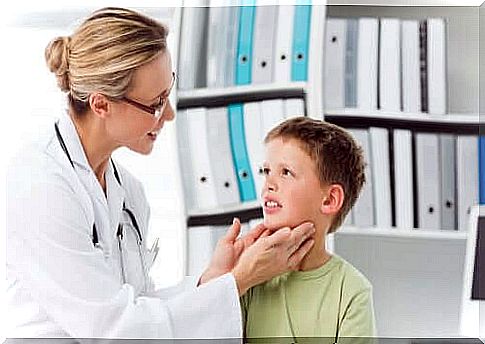
What are the causes of goiter in babies?
There are many causes why this disorder can occur in children. Some are:
- Infected thyroiditis. Some viruses such as measles, mumps or the flu inflame the thyroid. This condition is known as subacute de Quervain’s thyroiditis.
- Dietary iodine deficiency. Worldwide, it is the most common cause, as iodine is necessary for the synthesis of thyroid hormones and the proper functioning of the thyroid.
- Autoimmune thyroiditis. In these cases, the immune system attacks the thyroid and damages it. It can happen, for example, in Down syndrome or Turner syndrome. Graves Basedow’s disease is the most common cause of hyperthyroidism in children.
- Thyroiditis induced by certain drugs.
What are the symptoms of goiter in babies?
The symptoms or clinical manifestations of this alteration depend on many factors, such as the type of goiter, the associated causes, the age at which it occurs, the characteristics of each child, etc.
In general, when the inflammatory state of the gland is quite intense, it may be noted that it is difficult to swallow and even to chew. When it comes to goiter associated with infectious thyroiditis, fever, inflammation, and neck pain usually occur.
When hypothyroidism occurs in children, the most common symptoms are:
- Growth delay associated with low height.
- Delayed puberty.
- Overweight.
- Lack of appetite.
- Constipation.
- Dry and cold skin.
- Hair loss.
In the case of hyperthyroidism, however, the most common symptoms are:
- Accelerated growth.
- Nervousness.
- Difficulty sleeping and concentrating.
- High pressure.
- Increased appetite.
- Slimming.
- Diarrhea.
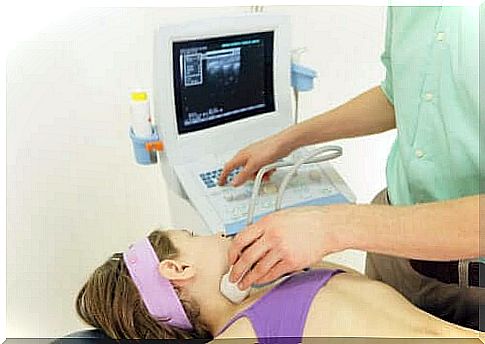
How can it be treated?
Treatment of goiter and associated disorders should be carried out and monitored by an endocrinologist. In most cases, anti-inflammatories are prescribed at first to reduce inflammation of the gland.
If the child has hypothyroidism, treatment will consist of administering fasting thyroid hormones in the form of Levothyroxine once a day.
When, on the contrary, there is an excess of thyroid hormones and we are therefore talking about hyperthyroidism, the treatment consists in the administration of antithyroid drugs. If that doesn’t work, surgery will be needed. In adults, hyperthyroidism is treated with radioactive iodine, a technique that is not often used with children because its effects are ignored.
To conclude, goiter is a disease with various manifestations that can occur in children with relative frequency. Sometimes the symptoms are barely noticeable, but when we detect some characteristic, such as those presented, we must consult the pediatrician.
